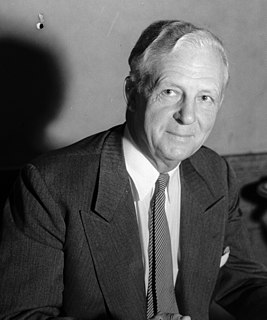A Quote by H. P. Blavatsky
Civilization may progress, human nature will remain the same throughout all ages.
Quote Topics
Related Quotes
In western civilization, the period ruled by mysticism is known as the 'Dark Ages' and the 'Middle Ages'. I will assume that you know the nature of that period and the state of human existence in those ages. The Renaissance broke the rules of the mystics. "Renaissance" means the "rebirth". Few people today will care to remind you that it was a rebirth of reason - of man's mind.
Progress celebrates victories over nature. Progress makes purses out of human skin. When people were traveling in mail coaches, the world got ahead better than it does now that salesmen fly through the air. What good is speed if the brain has oozed out on the way? How will the heirs of this age be taught the most basic motions that are necessary to activate the most complicated machines? Nature can rely on progress; it will avenge it for the outrage it has perpetrated on it.
The scientific doctrine of progress is destined to replace not only the myth of progress, but all other myths of human earthly destiny. It will inevitably become one of the cornerstones of man's theology, or whatever may be the future substitute for theology, and the most important external support for human ethics.
We are heirs of the ages because throughout the ages mankind has devised and fashioned new things, and step by step added new conquests to our domain in that incessant contest with nature which means life. But we are decadent heirs if we cannot use the instruments that the ages have put into our hands. The acquisition of these, in the largest scope, is education.
I wouldn't say that religion has promoted the social progress of mankind. I say that it has been a detriment to the progress of civilization, and I would also say this: that the emancipation of the mind from religious superstition is as essential to the progress of civilization as is emancipation from physical slavery.
I can live with doubt and uncertainty and not knowing. I think it is much more interesting to live not knowing than to have answers that might be wrong. If we will only allow that, as we progress, we remain unsure, we will leave opportunities for alternatives. We will not become enthusiastic for the fact, the knowledge, the absolute truth of the day, but remain always uncertain … In order to make progress, one must leave the door to the unknown ajar.
A ground frequently taken by Christian theologians is that the progress and civilization of the world are due to Christianity; and the discussion is complicated by the fact that many eminent servants of humanity have been nominal Christians, of one or other of the sects. My allegation will be that the special services rendered to human progress by these exceptional men have not been in consequence of their adhesion to Christianity, but in spite of it, and that the specific points of advantage to human kind have been in ratio of their direct opposition to precise Biblical enactments.



































